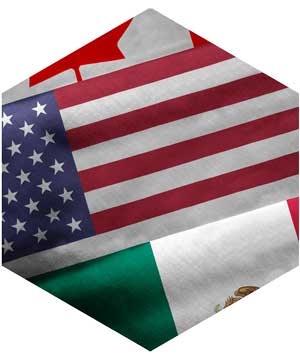USMCA
The United States-Mexico-Canada Agreement (USMCA) (the renegotiated North American Free Trade Agreement (NAFTA)) is important to U.S. manufacturers that depend on sugar for their products and the Americans these companies employ.
NAFTA established free trade in sugar between the United States and Mexico beginning on January 1, 2008. Today, Mexico is a critical supplier of sugar to the United States, as is Canada.
Unfortunately, the U.S. Department of Commerce took actions that essentially nullified the free trade in sugar with Mexico in 2014 and through amendments in 2017 and 2019, in ways that unduly limit needed sugar imports from Mexico. These modifications — also known as the U.S.-Mexico sugar suspension agreements — help contribute to the estimated $3 billion American consumers pay annually to guarantee high profits for big sugar processors, at the expense of U.S. consumers and American food industry jobs.
SUA supports the modest additional access that is afforded to Canadian sugar and sugar-containing products under the USCMA, which entered into force on July 1, 2020. These provisions, while small in scope, are helpful to food companies and their employees by permitting duty free entry of an additional 9,600 metric tons annually of refined sugar from Canada that is wholly processed from Canadian sugar beets.
Read more about sugar and international trade agreements in the following article:

